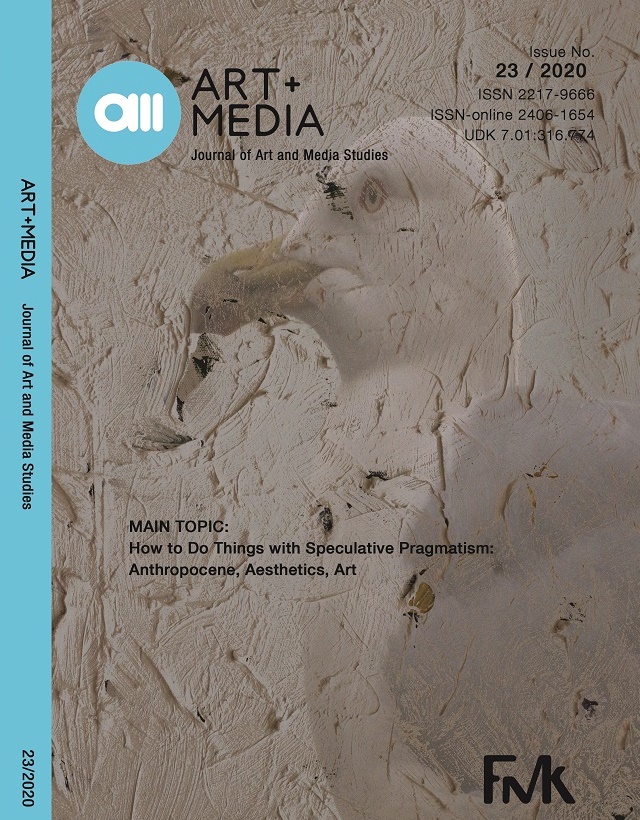How to do things in the Plasticene: Ontopolitics of plastics in Arendt, Barthes, and Massumi
How to do things in the Plasticene: Ontopolitics of plastics in Arendt, Barthes, and Massumi
Author(s): Andrija N. FilipovićSubject(s): Aesthetics
Published by: Fakultet za medije i komunikacije - Univerzitet Singidunum
Keywords: Plasticene; plastic; ontopolitics; intransitivity; signification; affect.
Summary/Abstract: In this paper, I develop three models for understanding plastic in the Plasticene epoch through readings of Arendt, Barthes, and Massumi. In the Ardentian model, plastic is made intransitive. It is withdrawn so far into the background of human experience as that which enables social and individual life of humans that it becomes the unthinkable. It can be argued that it is pushed to the background and made intransitive because of a certain image of the human and cyclical image of nature. The second model is Barthesian, and in it plastic becomes a signifying matter understood through a semiotic model. Plastic and products of plastic become signifiers in the ideological work of discourse. In the Massumian model, plastic is affective; it is a relational body in the process of becoming, simultaneously intensive and multiple in its eventfulness.
Journal: AM Časopis za studije umetnosti i medija
- Issue Year: 2020
- Issue No: 23
- Page Range: 91-101
- Page Count: 11
- Language: English

